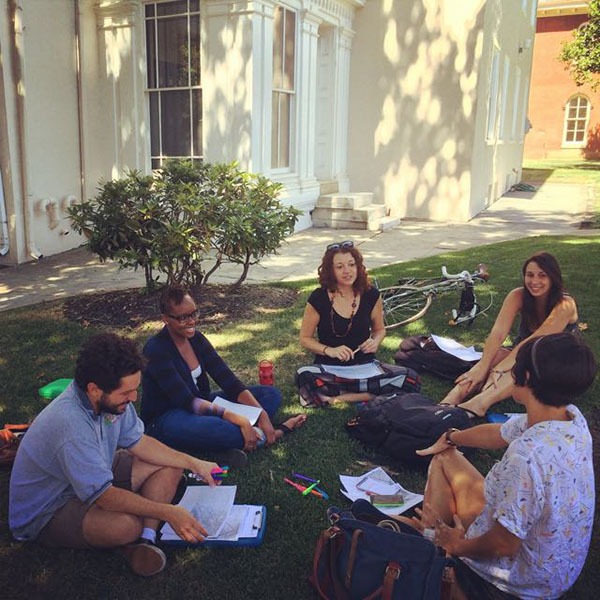
The Second Project: Teaching Research through Collaboration
Editor’s Note: This is the third entry in the Second Project Series. You can read the second post here. This series explores an often undiscussed moment in professionalization: the shift from the research you began as a graduate student to the new work undertaken as an early- or mid-career scholar. This series is especially interested in personal journeys and institutional features that enabled or constrained this transition. If you are interested in contributing, please contact Lisa. Monday afternoons at least a dozen students and I gather to work on a collaborative ethnographic project. Some weeks we meet around a long, boardroom style table where we discuss article outlines, literature reviews, and “findings” crafted by our team members. Other weeks we organize around a handful of circular tables where small working groups tackle different pieces of the project—analyzing quantitative data using SPSS, creating GIS maps, coding qualitative survey questions, or co-writing a white paper, which we hope to have ready by the end of the year. About a third of these students have worked on the project since September 2014, when we conducted a door-to door survey across three Philadelphia neighborhoods. Others have joined the team along the way, interested in learning social science research on an active project. Many more, who worked on the first leg or two of the project, have since graduated. Most have stayed in touch and a few continue to collaborate with our group in some way, as professionals in nonprofits or community-based organizations, and also as graduate students in PhD and Master’s programs elsewhere. Among our group there is a real sense of community built around engaged interdisciplinary research focused on environmental health; this sense has been cultivated pedagogically through research design. Across academic contexts, teaching and research are treated separately, and are often pitted against each other. Research, we are told, comes first and teaching, second. To me, the outcomes of such division are ethically problematic. I also believe this division misrepresents our intellectual lives and scholarship. My second project is as much about addressing this misrepresentation as it is environmental health, technoscience, and urban landscapes. There is no question in my mind that teaching research, and collaborating with students has made me a better scholar. (read more...)
